

Rocketmen: The new breed of space explorers
ANALYSIS: How clever startups and their wealthy backers opened up Earth’s final frontier.
NBR columnist Nevil Gibson speaks with Fiona Rotherham.


ANALYSIS: How clever startups and their wealthy backers opened up Earth’s final frontier.
NBR columnist Nevil Gibson speaks with Fiona Rotherham.
The space industry has radically changed since Elon Musk founded SpaceX in 2002 and US authorities welcomed private enterprise as a major contractor. A week seldom goes by without news of a space-linked enterprise firing off new rockets with astronauts and satellites on board.
In recent days, I encountered these stories:

Rocket Lab’s launch pad at Mahia Peninsula.
All these companies feature in When the Heavens Went on Sale, by Ashlee Vance, a riveting account compiled over the past five years, in which a handful of companies have transformed the space industry.
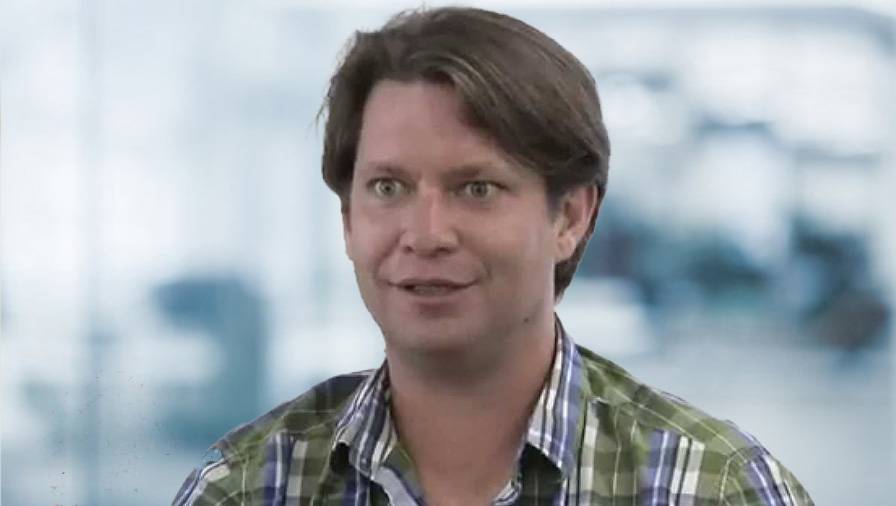
Ashlee Vance had a front-row seat to observe the new space industry.
Vance, who works for Bloomberg and wrote the first bestseller on Elon Musk, claims to have had a “front-row seat” in these developments; specifically, he has produced in-depth accounts of four companies: Planet Labs (founded 2010), Rocket Lab (2006), Astra (2016), and Firefly Aerospace (2017).
Naturally, Rocket Lab will be well known to NBR readers but Vance devotes more than 100 pages to Peter Beck and his achievement in a book of 500 pages. Much of this material is exclusive to Vance, and readers are also rewarded by how others judge Beck, including Elon Musk.
Unlike his peers, Beck did not go to university or become a billionaire by other means. He also lived in a country without an aerospace industry and no investing community to back him.
Beck presents himself as a modest, self-effacing Kiwi, who has earned respect from his peers but also remains an enigma in an industry Vance describes as being rife with idealism, passion, invention, ego, and greed.
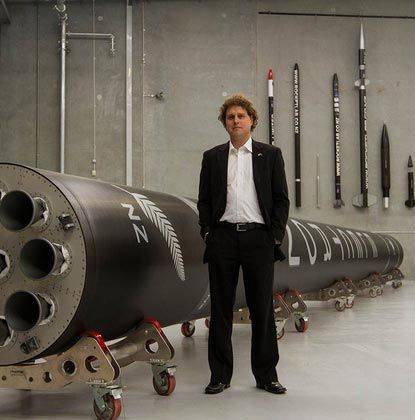
Peter Beck.
Unlike Musk, Bezos, and others I will come to, Vance concludes that Beck has refused to disclose his ultimate ambitions, possibly because he doesn’t know himself.
“Beck had a knack for keeping his real intentions hidden, lest a rival got an inkling for his master plan,” Vance observes. He also reveals Beck’s co-founder, Mark Rocket (formerly Mark Stevens), gave away the opportunity to become a billionaire by refusing deals with the US military.
“[Rocket] kept things between him and Beck, so that Rocket Lab would not have any debt on its balance sheet, and he walked away from an investment that could have been worth millions, even billions, of dollars if Rocket Lab turned into a massive success.”
Today it is worth US$2.4b on the Nasdaq and apart from Beck most of the shareholding is American. This is because rocketry is considered a national strategic asset in the US. While Kiwi engineers are free to send their work to America, there is no reciprocity.
Vance reveals US officials bungled Rocket Lab’s first launch in 2017 when they misconfigured their tracking software and aborted the flight. “They were the ones who sucked Peter Beck’s soul right out of his body and stepped on it.”
In general, despite the complications of dealing with US authorities, Rocket Lab’s history has been one of unparalleled success compared with the stories of the other three companies Vance profiles.
Planet launched its first imaging satellites in 2017 from an Indian space centre in the middle of the Bay of Bengal. The company had emerged from a skunkworks inside Nasa’s Ames base in Silicon Valley known as ‘Pete’s kids’.
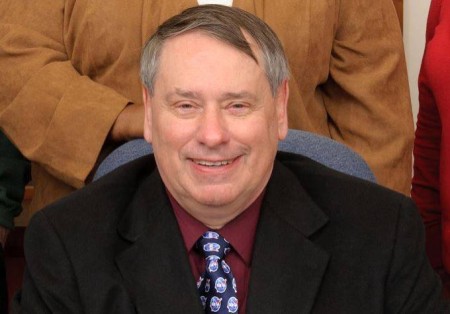
Nasa guru Pete Worden inspired a new generation of space geeks.
Simon P (‘Pete’) Worden, an adviser on President Reagan’s ‘Star Wars’ – the Strategic Defence Initiative – in the 1990s, recruited bright graduates including Chris Kemp, Chris Boshuizen, Will Marshall, Robbie Schingler, and his wife Jessy Kate Cowan-Sharp.
Most lived in a commune known as Rainbow Mansion and together, except Kemp, they established Planet with the aim of providing detailed open-source images that “kept governments honest”. These ranged from China’s build-up of nuclear arms and military expansion in the South China Sea to deforestation in Brazil and natural disasters everywhere.
Marshall explained: “We are trying to be careful about how we bring this out responsibly. But it is going to change the way that governments have to deal with the world. They can’t hide.”
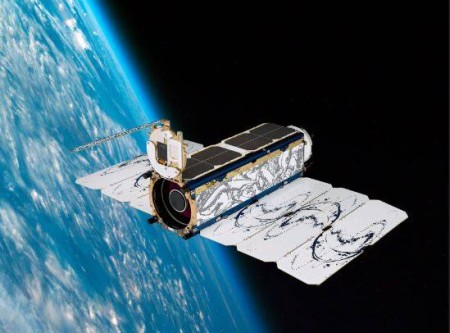
Planet’s thousands of Dove satellites photograph every part of Earth.
That is not surprising given Planet’s thousands of Dove satellites take four million photographs a day, with up to 12 daily of specific locations. Its database has some 1700 images of every place on Earth.
Today, San Francisco-based Planet, which worked with Google on its mapping apps, continues to be the world leader in its field. “They changed not only how we get to space but what we can do once we’re there,” Vance says.
The goal of Kemp’s startup, Astra, was to be leaner, meaner, and faster than any other rocket-maker. Based at Almeda – a former US Navy engine-testing site in San Francisco’s Bay Area – it had a cavalier approach to rules and regulations.
Vance was let into the project from the start, based on secrecy until its first rocket launch from Kodiak Island in Alaska. That finally occurred in 2018 but the company’s fortunes were dogged by a series of failures in its early years. It’s now on the fourth iteration of its rocket and has yet to carry a commercial payload.

Firefly Aerospace’s rocket.
The fourth, and final, profile is also the most complex and controversial. Tom Markusic, a Texan, was a Nasa observer at the launch of SpaceX’s Falcon 1 rocket in 2008 at Kwajalein atoll in the Marshall Islands.
He had ‘gold badger’ status at Nasa, meaning he had a job for life. Instead, he left to spend five years at SpaceX before moving on to Blue Origin, the Bezos company where he lasted just two weeks due to frustration at its laidback culture.
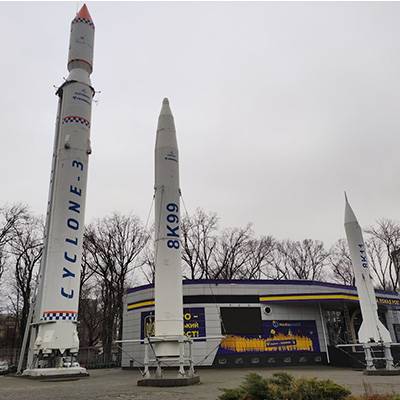
Dnipro’s rocket park in Ukraine.
Real rocketmen aren’t born to be cautious or noted for their patience. Another short stint, at the Virgin’s Spaceport at Mojave, California, ended over disagreement with its direction. He moved back to Texas and launched Firefly after the sale of his SpaceX shares.
In April 2017, Firefly declared bankruptcy after burning through US$30m, but was saved by a rich Ukrainian investor, Max Polyakov, who had made a fortune in dating and pornographic websites. He retained Markusic as CEO and a Belarusian rocket expert, Artiom Anisimov.
Polyakov took Vance to Ukraine to show him what remained of the former Soviet Union’s most advanced aerospace industry. Polyakov continued to fund Firefly to the tune of US$250m until he, like Beck, ran up against US authorities over his nationality.
The conclusion to this story, like the others, reads like thriller, until Vance is forced to wrap up his account to meet his publishing deadline. While Beck is the quiet hero of Vance's account, and overshadowed by Musk, this book’s real value is in the colourful characters who fill up the rest of its pages.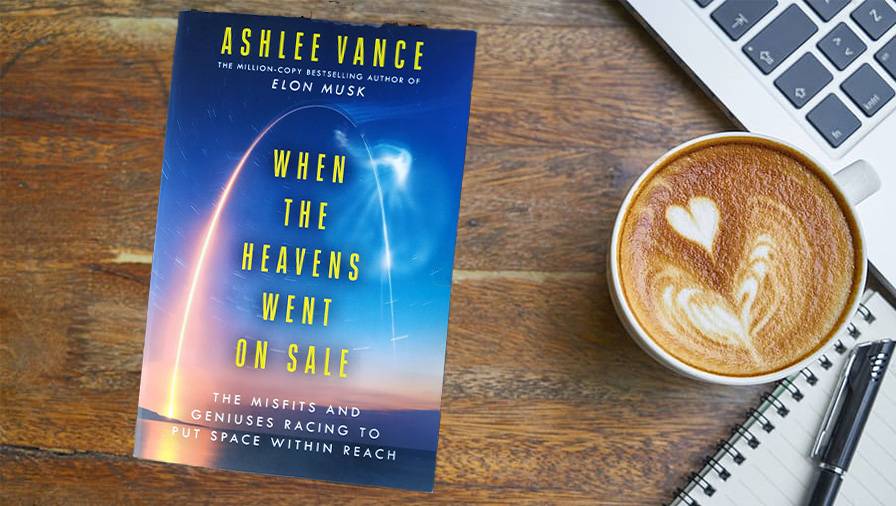
When the Heavens Went on Sale: The misfits and geniuses racing to put space within reach, by Ashlee Vance (WH Allen).
Nevil Gibson is a former editor at large for NBR. He has contributed film and book reviews to various publications.
This is supplied content and not paid for by NBR.
Sign up to get the latest stories and insights delivered to your inbox – free, every day.